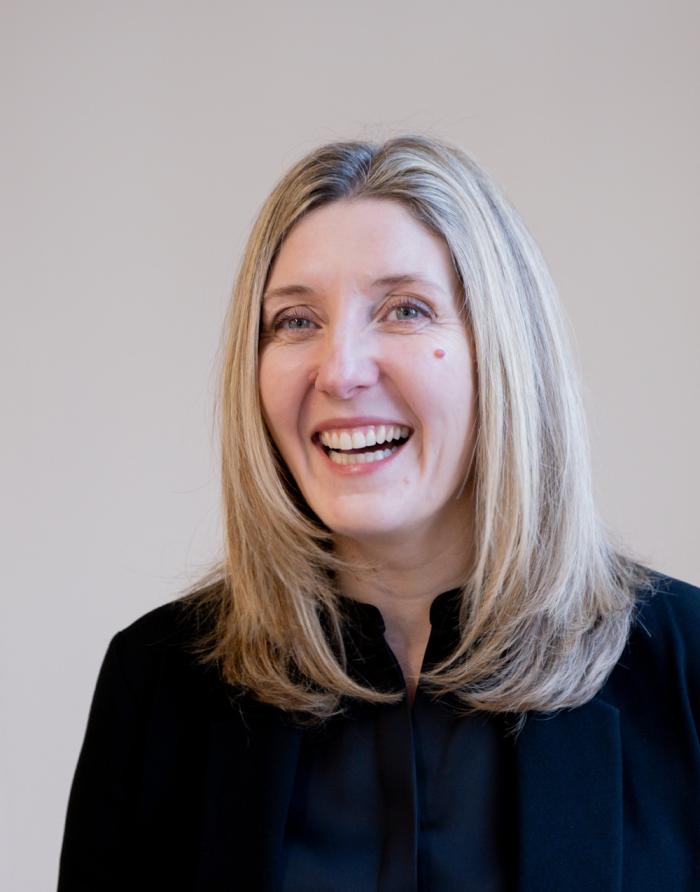For generations, womanhood has been quietly equated with motherhood. Even in 2025, brands and cultural systems still assume women will become mothers. And when they don’t, the world struggles to place them.
But millions of women are rewriting that story.
Globally, fertility rates have more than halved since the 1960s - from 5.3 children per woman to just 2.3 in 2023. In countries like South Korea, that number drops to 0.72. In the US, 47% of adults under 50 now say they are unlikely to have children at all. And by 2030, 45% of women are expected to be single.
Yet despite this seismic shift, the world has been slow to catch up. Most women without children are still invisible in product and service design, excluded from research, or pigeonholed in reductive archetypes. When they are represented, it’s often through a narrow lens: the lonely aunt, the corporate high-flyer, or the woman who "missed out."
It’s time to rethink what womanhood without dependents actually looks like - and what brands are missing by continuing to overlook it.
They Don’t Need a Label. They Need to Be Seen.
Many women without children bristle at the available terminology. “Childless” sounds like loss. “Childfree” feels politicised.
"I don’t consider myself childless or childfree - just someone choosing to live life in the most joyful, impactful way possible." Woman, US
The problem isn’t just the semantics. It’s the assumption that this identity needs to be defined by what it lacks. For many, the reality is far richer and more multifaceted. They are caregivers in other ways. They are leaders, mentors, and creators. And they are often thriving.
"I wish people could see how rich my life is - not in money, but in how I spend my time, who I show up for, and the ways I contribute. I don’t want to apologise for that." Woman, US
This isn’t just a Western phenomenon. Across cultures, women are pushing back against the assumption that their value depends on family status:
“There are still these invisible expectations - if you’re single, people ask when you’ll marry. If married, when you’ll have kids. It never ends.” - Woman, China
“Women sacrifice too much for children, for the elderly. They narrow their own lives. But everyone deserves to pursue meaning outside family.” - Woman, China
Same Core Needs. Distinct Realities.
Women without dependents are often left out of product and service strategies entirely. Why? Because brands assume their needs must be radically different - or not different enough to bother with.
They want skincare and sneakers, tech and travel. In many ways, their needs often mirror the mainstream, though there are nuances that still get overlooked. Sometimes, it’s as simple as smaller laundry packs instead of family size. And sometimes, it’s not wanting to be patronised with ‘solo travel packages.’
But in other cases, the difference is significant:
Financial planning: These women often pay more tax, save for retirement alone, and lack products that reflect single-person wealth journeys.
Healthcare: They’re more likely to be under-researched, overcharged, or assumed to be ‘still trying.’
Travel: They’re hit with single supplements, lack targeted safety features, and are often marketed romance rather than adventure.
“Your mortgage is the same whether it’s one of you or two of you. There are no financial products for that. No one helps you plan for retirement alone.” - Woman, UK
“We don't have kids, and we love it that way. We travel, we explore new things - it’s our version of fulfilment.” - Woman, China
Representation Shouldn’t Require a Backstory
Too often, when women without children appear in ads, they come with a backstory: the heartbreak, the career, the freedom, the regret. But most women don’t walk around explaining their child status to strangers. So why should brands feel the need to?
What’s missing is the simple, celebratory representation of women living full, ordinary, extraordinary lives - not in spite of their independence, but because of it.
“Before marriage, as a single woman, I succeeded professionally and built a property portfolio. That gave me a sense of security and a kind of happiness.” - Woman, France
This is where brands can do better. Stop telling stories of lack. Start telling stories of abundance.
The Future Is Not Maternal - And That Changes Everything
For decades, social systems and brand strategies have assumed that most women will become mothers. But what if that’s no longer true?
“When women are used in marketing, they’re either seated, passive, or helping someone else. Never leading. Never visible on their own terms.” - Estelle Porcher, Boomer Innovation Center · L'Oréal
Pension systems, urban planning, financial products - and even AI training data - are still shaped by a past where women had children. But the new reality demands a rethink.
In 1950, the average woman had five children.
In 2025, she’ll have two or fewer - and in many countries, none.
This isn’t a post-war baby dip. It’s a wholesale reset of what’s considered “normal.” And that changes everything.
If this shift continues, we’ll need to rethink:
Healthcare: How we support aging solo and emotional health beyond caregiving roles.
Policy & infrastructure: From community housing to retirement design, how do we build for single-person households?
Financial and wealth products: Planning for one isn’t planning for less - but it is different.
AI & algorithmic bias: Training data based on nuclear family defaults will continue to misfire - especially for women.
The Shift Isn’t Coming. It’s Already Here.
This audience isn’t fringe or future-facing - it’s already reshaping the economy. Women without dependents hold rising disposable income, solo decision-making power, and distinct lifestyle priorities - and they’re putting that money to work.
“As you get older, you learn to see things more clearly. You stop comparing yourself to others, and your sense of happiness becomes more sufficient.” - Woman, China
Women in this group are statistically more likely to spend on travel, wellness, education, and property - often outspending their parenting peers:
- According to 2025 travel forecasts, solo travel among women is on the rise, with 45% of women now expressing interest in traveling solo. Up 8% in a single year.
- Many are investing in personal development and long-term lifestyle infrastructure over traditional family spending.
Gen Z and Younger Millennials Are Redefining Fulfilment
Younger generations are actively reshaping the narrative around fulfilment and success. Parenthood is increasingly viewed as optional, not inevitable.
- A 2021 Pew survey found 44% of U.S. non-parents aged 18-49 say they are unlikely to have children - up 7 points since 2018. Most common reason? They just don’t want to.
- According to UCL research, millennials are delaying or forgoing children due to housing costs, income insecurity, and lack of support.
Their goals are shifting: toward freedom, financial autonomy, and experiences designed around the self - not the family unit.
Time to Act, Not Just Observe
If brands want to stay relevant, they need to move past lazy assumptions. That means listening - not just to what these women reject, but to the lives they are already building.
That’s not a compromise. It’s a recalibration. And it’s time brands caught up.
We’ve been listening to women the world overlooks. If you're rethinking how to connect with them, let's talk.

